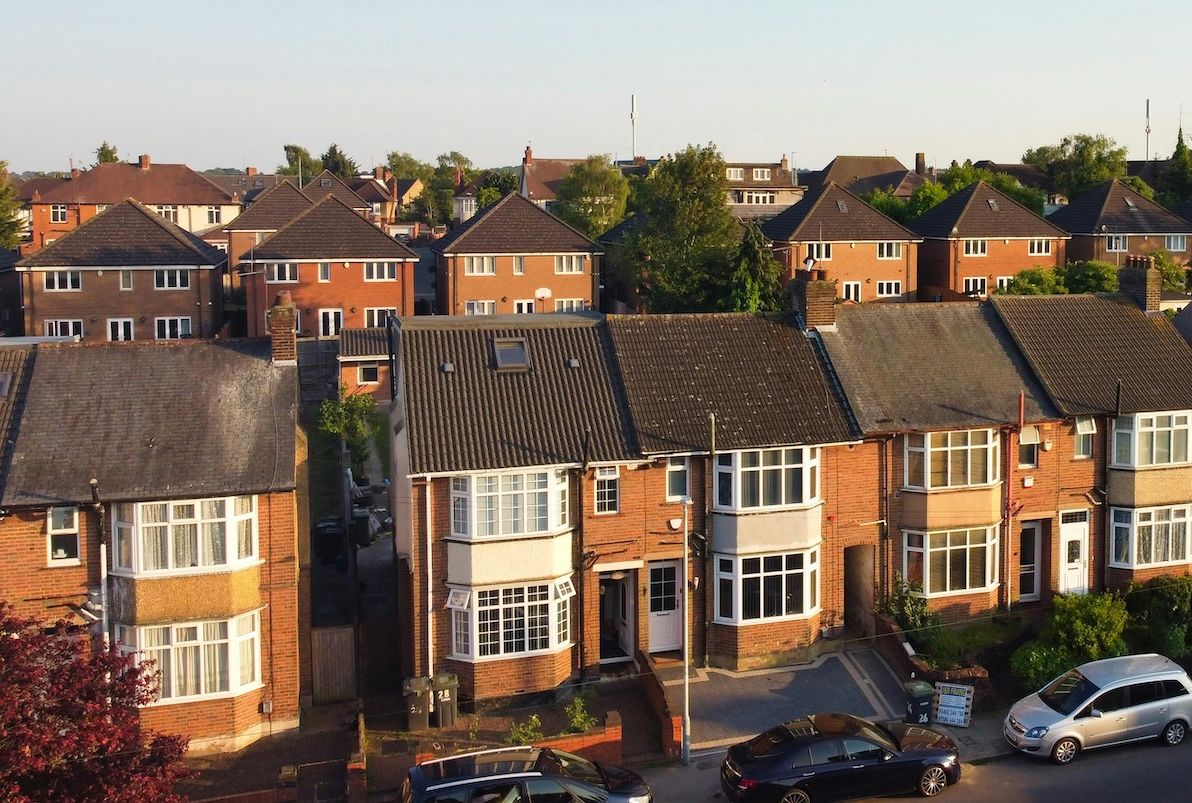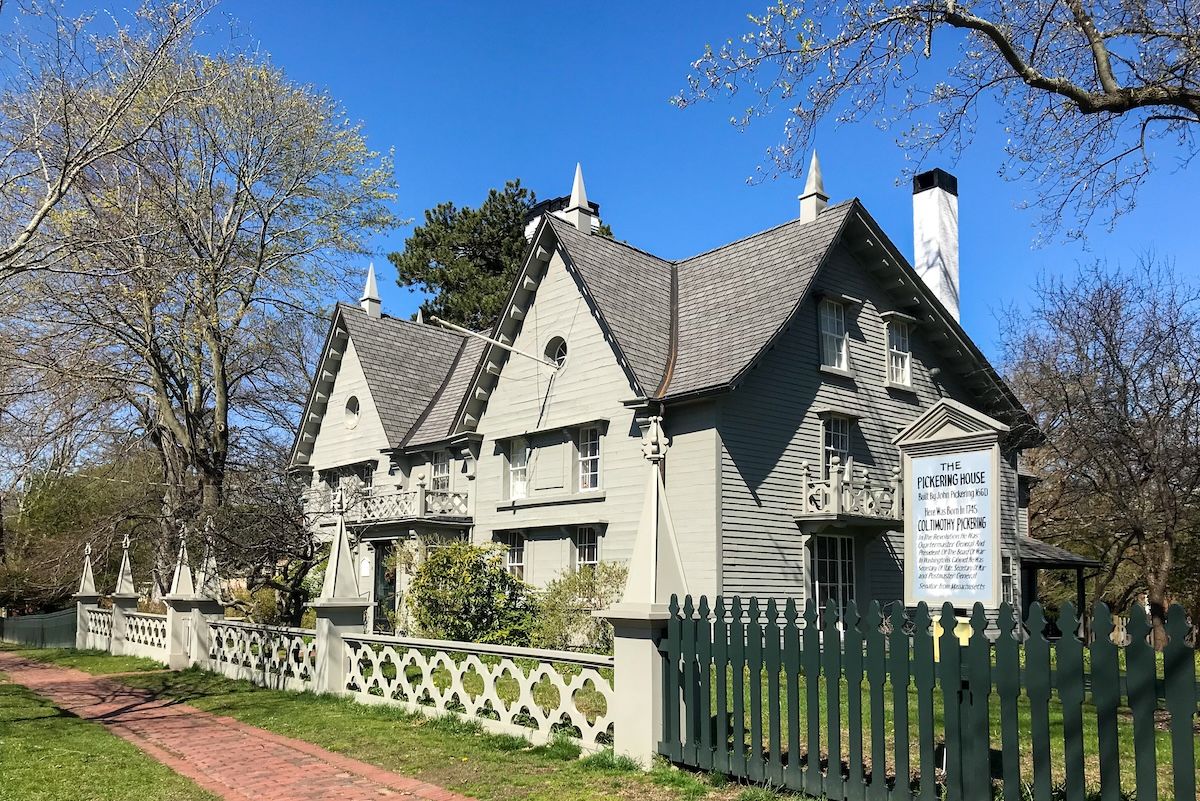- What is the Good Neighbor Next Door Program?
- Who is Eligible for the GNND Program?
- What Kind of Homes Qualify for the Good Neighbor Next Door Program?
- Benefits of the GNND Program
- How to Find Eligible Properties
- Application Process for the GNND Program
- After Application - What Next?
- Achieve Homeownership and Community Revitalization through the GNND
What is the Good Neighbor Next Door Program and How to Apply?
Government-sponsored payment assistance programs provide enormous savings for eligible homebuyers, but some offer more than others.
Certain professionals can purchase a home for up to 50% off the list price through the federal Good Neighbor Next Door program. Teachers, firefighters, emergency medical technicians (EMTs), and law enforcement officers, all professionals considered public servants (who often have limited incomes) qualify.
They can receive significant savings on select properties in urban development and revitalization areas by committing to a three-year occupancy requirement in the property. With the median home price over $410,000 today, this discount can be a considerable savings for eligible homebuyers.
The Good Neighbor Next Door Program seeks to help public servants while serving communities in need. So, what is the Good Neighbor Next Door program? And how do eligible participants apply?
What is the Good Neighbor Next Door Program?
The Good Neighbor Next Door program is a federal homeownership initiative launched by the Department of Housing and Urban Development (HUD) in 1995. The program’s program’s main goal is to encourage homeownership opportunities for specific groups of public service employees while stimulating revitalization in distressed communities.
Through HUD’s Good Neighbor Next Door Program (GNND), HUD offers a substantial incentive in the form of up to a 50% discount off the list price of eligible single-family homes located in designated urban development areas across the country. Interested buyers who meet the eligibility criteria as teachers, law enforcement officers, firefighters, or EMTs can realize significant savings on the purchase price. In return for the discount and program benefits, they must commit to live in the HUD property for 36 months as their primary residence.
By offering a homeownership incentive to civic-minded workers, GNND aims to strengthen neighborhoods from within. The program has positively impacted revitalization efforts nationwide for over 25 years by funneling qualified residents into communities needing economic and community development.
GNND listings are only available for purchase by eligible buyers for a limited time – just seven days. The number of discounted properties available is limited, but new homes are added weekly. This makes GNND extremely competitive, but allows HUD to maximize the revitalization impact in areas of greatest need.
The Good Neighbor Next Door program allows public servants to achieve the dream of homeownership, often in communities they serve, while also contributing to local economic development and community rebuilding efforts. It is a win-win for both buyers and neighborhoods.
Who is Eligible for the GNND Program?
The Good Neighbor Next Door (GNND) program aims to revitalize communities by encouraging public service professionals to become homeowners. The program specifically targets those who serve the neighborhood where the home is located.
Eligible applicants must meet employment conditions and adhere to additional requirements after purchasing a home through the GNND program.
Law Enforcement Officers
Police officers are valued members of the community. As a law enforcement officer, you can buy a home through Good Neighbor Next Door as long you:
- Are employed full-time by a law enforcement agency at the federal, state, tribal, county, township, or municipal level.
- Are sworn officers who uphold and enforce the relevant laws.
- Directly serve the locality where the home is located.
The requirement of having to live in the community they serve can represent a significant barrier to purchasing a home through Good Neighbor Next Door. It’s designed to incentivize officers to join districts in a HUD revitalization area.
Unfortunately, it does not extend to active-duty military members or veterans. However, military service members and veterans may have access to other programs and benefits to assist with homeownership.
Teachers
Teachers can participate in the Good Neighbor Next Door Program. To qualify, they must meet the following criteria:
- Have full-time employment at a state-accredited public or private school that provides services to students in grades pre-kindergarten through 12.
- Their teaching role must serve students from the area where the home is located.
Firefighters and Emergency Medical Technicians
If you are a member of a fire department (firefighter or emergency medical technician), you may qualify for the Good Neighbor Next Door Program. To qualify, you must:
- Must be employed full-time by a fire department or emergency responder unit of the Federal, State, tribal, or local government.
- Their role must directly serve the locality of the home.
Additional Requirements for Eligible Participants
Meeting the entry employment requirements is just the first step in qualifying for this program. Home buyers must also meet and maintain additional criteria.
First, they must remain employed in their qualifying public service job for at least one year after closing on the home. That means that if they lose their job due to termination or quitting, they could potentially face consequences. Additionally, the buyer must use the home as their primary residence and live there for at least three years. The buyer will have to verify that they are occupying the home annually.
The buyer must sign a second mortgage and note to cover the difference between the full list price and the discounted purchase price they receive. After you live in the home as your sole residence for three years, the second mortgage is forgiven. You do not have to repay the discounted amount, and the lien on your property is released.
While the Good Neighbor Next Door Program is not limited to first time homebuyers, the buyer and their spouse cannot have owned any other residential property in the year before submitting their bid on the home. They also cannot have previously bought another house using this program. These measures ensure the discounts go to eligible buyers who contribute to community stability.
What Kind of Homes Qualify for the Good Neighbor Next Door Program?
The Good Neighbor Next Door program provides an appealing opportunity for eligible homebuyers to purchase a home at a significant discount in exchange for contributing to community revitalization efforts. Homes that can be purchased through the GNND Program are:
- Single-family homes foreclosed on and now owned by the U.S. Department of Housing and Urban Development (HUD).
- Bank-owned real estate-owned (REO) properties acquired by HUD after homeowners defaulted.
- Located in HUD-designated “revitalization areas” needing community stabilization.
- Listed for sale exclusively through the GNND program on the HUD Homestore website
- Sold “as-is” with repairs being the buyer’s responsibility
The homes available are existing HUD inventory in distressed areas that need reinvestment from public servants who will contribute to revitalizing the property and area.
A HUD revitalization area is identified based on factors such as:
- High poverty rates
- High foreclosure rates
- Low homeownership rates
- Other indicators of distress such as high unemployment rates or blighted properties
The goal of designating these areas is to encourage investment and revitalization efforts, which can be combined with other programs like:
- Special grants
- Loan programs
- Down payment assistance programs
With a significant upfront discount, program participants can affordably become homeowners while revitalizing their community.
Benefits of the GNND Program
The Good Neighbor Next Door program offers much more than just a discounted home price – it opens the door to affordable homeownership and community involvement.
The benefits of the Good Neighbor Next Door Program includes:
- Discount on Home Price
The primary benefit is a 50% discount off the list price of the home. This discount allows eligible buyers to purchase a HUD home for much less than its appraised value. - Flexible Financing
Participants are not limited to an FHA loan and can make purchases using other lenders as well. However, most lenders only require a $100 down payment for GNND-purchased homes. - Community Revitalization
GNND provides the chance to live affordably while helping stabilize and improve a disadvantaged neighborhood as an active community member. - Build Equity
With a discounted purchase price, buyers can quickly build home equity. While they do have to sign a second note, that note is forgiven after they have lived in the home for three years. Depending on the property, this could represent hundreds of thousands of dollars.
In today’s real estate market, affordable homeownership is hard to find. The Good Neighbor Next Door Program allows eligible public service professionals to achieve homeownership.
How to Find Eligible Properties
The number of properties available through the Good Neighbor Next Program is extremely limited, especially when the housing market is strong and foreclosure rates are low.
To buy a home through the GNND Program, you must submit an offer through a HUD-registered broker or real estate agent. Start your search for a HUD-registered broker with FastExpert.
When you’re ready to start your home search, it’s important to remain patient. Finding and winning a bid on a GNND home often takes time, and homes are only available on the marketplace for seven days. To search for properties, use HUDHomestore.com and the following strategies:
- Use the “Good Neighbor Next Door” filter under Listing Type to see only GNND homes. This isolates the listings you qualify for.
- Look for “Good Neighbor Next Door” or “GNND” mentioned in the property description to confirm eligibility.
- Check that the address is in a HUD-designated revitalization area. GNND homes are located in these communities.
- Review the price. GNND listings will reflect a 50% discount off market value for program participants.
- Note if the property is listed as “Insured” or “Insured with Escrow” – this means it was foreclosed on from an FHA-insured mortgage.
Using strategic search filters and identifying program indicators in the listings will help you pinpoint properties eligible for purchase through the Good Neighbor Next Door program. Act fast if interested; listings are typically only available for a limited time before being opened to the general public.
Application Process for the GNND Program
Like any governmental program, the Good Neighbor Next Door program has specific steps and requirements. Interested homebuyers need to understand and follow the proper application protocol to take advantage of this opportunity to purchase a discounted HUD property in a revitalization area.
Here is a step-by-step application process for the Good Neighbor Next Door (GNND) program:
- Register on the HUD Home Store website.
- Get pre-approved for a mortgage. Having financing already in place through a pre-approval letter can help expedite the process when you bid on a home.
- Contact a HUD-registered real estate broker. Bids on HUD homes can only be submitted by approved brokers, so this is an essential step.
- Identify potential GNND listings. Search for and verify properties that meet GNND location and discount qualifications. Do not rely on your broker to do the searching for you.
- Submit an offer and earnest deposit. Once you’ve decided on a property, your broker will submit your bid and the required 1% earnest money deposit on your behalf.
- Await lottery results if there are multiple bids. HUD uses a lottery system to select the winning bid if multiple offers are received. Remember to be patient throughout this process, as it may take many attempts before you are able to buy the right property.
- Complete the paperwork and close once your bid is selected. Expect a 55-80 day closing period after your bid is chosen, as GNND home purchases take longer than traditional home purchases.
The lottery system means acting quickly when a qualified GNND property becomes available is important, as most are only listed for seven days before being re-listed publicly if unsold.
This makes timely application critically important – buyers need to get their bid and earnest money deposited as early as possible once a home is listed to ensure their offer is in the lottery from the very start.
After Application – What Next?
Once your application for a GNND property makes it through the competitive bidding process, there are still several steps required before you can move into your new discounted home.
The first step is to get your application accepted. Multiple bigs are common on HUD homes. If multiple applications are received within the 7-day listing period, HUD conducts a lottery to randomly select the winning bidder. If you are the only bidder or are selected in the lottery, you will receive notice that HUD has accepted your bid within 1-2 days after bidding closes.
Once approved, it’s time to finalize your financing and closing documentation. Work with your lender and real estate agent to complete all required paperwork and underwriting.
Closing timelines through the Good Neighbor Next Door Sales Program take longer than most traditional real estate transactions. Expect to close on the property 55-80 days after bid acceptance. At closing, buyers sign their first mortgage and a second mortgage.
The second mortgage covers 50% of the home value. The second mortgage is called a silent mortgage, which means that no payments are made on it so long as the borrower remains program-compliant.
After all documents are signed, buyers take ownership and receive the keys to your new discounted home. At this time, you may have to commit to renovations and see a renovation loan to improve the property.
The GNND program requires homebuyers to occupy the property as their sole residence for at least 36 months after closing. Buyers are required to submit an annual occupancy certification each year. This process confirms that they remain compliant and continue to use the home as their primary and sole residence. Strict compliance with occupancy and certification guidelines is crucial to avoiding repayment of the 50% discount or even foreclosure.
After three years, the homeowner is rewarded by having the silent second mortgage released by HUD. At this time, the owner must only continue making payments on their first mortgage and should have a considerable boost in home equity.
Achieve Homeownership and Community Revitalization through the GNND
The Good Neighbor Next Door program is a win-win. It’s hard to beat 50% off a home’s value, and new ownership of these properties helps boost communities in need of revitalization.
However, like any government program, there are strict eligibility requirements, and finding the right home can be difficult. Buyers need to move quickly while being patient. Furthermore, there are ongoing requirements for three years post-purchase. The good news is that the program creates an opportunity for public servants to become homeowners and quickly build substantial equity.
If you qualify through your job, don’t sleep on this opportunity. Connect with a HUD-approved buyer’s agent to get the ball rolling. Working with the right real estate agent on your Good Neighbors Next Door home purchase is crucial to success. Skip the hassle of finding a qualified agent and let FastExpert connect you with a HUD-registered, top-rated local real estate agent.
FastExpert has the largest network of highly-reviewed agents in the industry. Find an agent that fits your specific needs, neighborhood, and price range.





